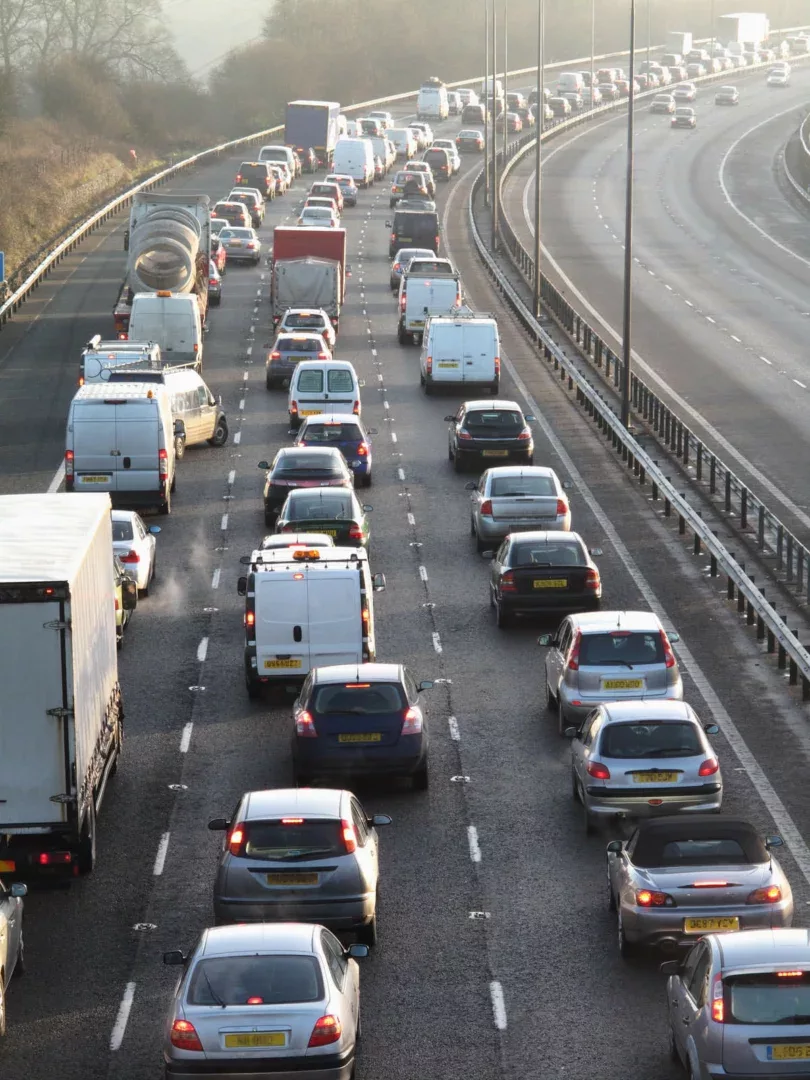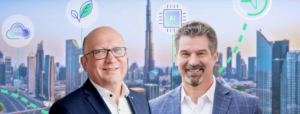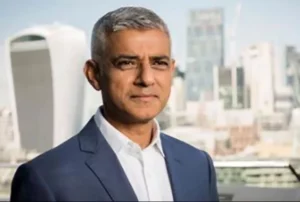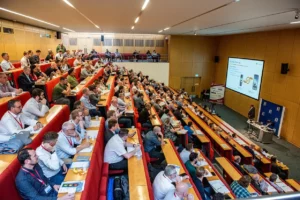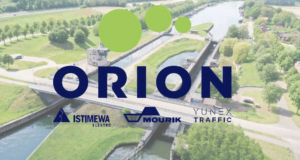The leaders of global Intelligent Transport Systems solutions providers Kapsch, Yunex Traffic and SWARCO have come together to write an open letter to the participants of this year’s WEF in Davos next week to take “concrete steps for sustainability”.
They say that traffic causes more than 20% of global CO2 emissions, so it is a “crucial lever to master the climate crisis”.
Read the full letter from the three competitors here:
Dear participants at the World Economic Forum 2022 in Davos,
In the coming days you will discuss the critical challenges of our time, evaluate ideas, and develop solutions.
The climate crisis is one of them. The most urgent of them. If we do not take far- reaching action now, we will not be able to stop global warming. And, we will not be able to preserve our planet for future generations.
Climate change is driven by many factors, but the transport sector is one of the biggest causes: More than 20% of global CO2 emissions are attributable to transport. In Europe, the figure is as high as 30% . When we look at our cities and the growing urbanization, this is hardly surprising. Traffic congestion and air pollution are part of everyday life in cities around the world, harming people’s health and the environment.
If we want to tackle the climate crisis, we need to change the way we move. Making conscious selections of the most adequate and environmentally sound mode of transportation for our trips is a first step. But it cannot be the only one. To realize sustainable mobility, we need to change the way we use and manage traffic and implement environmentally friendly mobility solutions that positively influence traffic flow and mobility behaviour. We need to implement a traffic management system that allows for holistic, proactive, and demand-driven use of road and transit capacity. We must change the behaviour of road users so that they actively choose more sustainable modes of transport.
We need to collect environmental data on pollutants such as nitrogen oxides and particulate matter, and information on traffic density and available modes of transport so that traffic is not static but managed according to the needs of road users and for the benefit of the environment. We need to reduce motorised individual traffic. Low emission zones or dynamic congestion charging are possible solutions.
Digitisation can significantly accelerate the transformation to sustainable, environmentally sound, and climate-friendly mobility. If we digitize our roads, we can make mobility sustainable, efficient and reliable so that everyone wins: public transport, car drivers, cyclists, pedestrians and everyone else who is micro mobile. The main winner will be the environment.
However, we can only meet the challenges of sustainable mobility when we work together and restore trust. Trust in public transport, trust in sustainable transport systems, and trust in politics to take the right measures now, on and off the road, to preserve our planet.
We, the world’s leading providers of intelligent traffic systems, may be competitors in the market. But we stand united when it comes to sustainable mobility solutions because only together will we be able to influence climate change together on a global level. And, because there is no time to lose.
This is why we are jointly calling on the world’s economic leaders:
· Mobility must be acknowledged as a key driver of climate change, and the development and implementation of solutions to reduce transport emissions must be put at the top of the agenda.
· Cities, communities and road network operators need financial support to implement innovative solutions – there must be incentives and funding to encourage greener forms of transport.
· The ITS industry must be adequately considered in new initiatives and regulations such as the EU Taxonomy For Sustainable Activities.
Markus Schlitt, CEO of Yunex Traffic said, “To realise the much-needed mobility revolution, companies should turn away from the ‘Egosystem’ of working against each other and towards an ‘Ecosystem’ in which we do not waste time competing but focus on developing open solutions for the biggest crisis of our time – the climate crisis – as quickly as possible. I am proud that we can lead by example by standing together today as global leaders in intelligent traffic systems and joining forces in striving for a more sustainable mobility.”
Michael Schuch, CEO of SWARCO, acknowledges the importance of addressing the challenges in the transport and mobility sector now, “Our generation has the responsibility to preserve a liveable planet for future generations who want to be mobile as well. This is something we can contribute to with our expertise. Intelligent infrastructures, behavioural changes in our everyday lives, and traffic management solutions evolving with new requirements and considering the entire mobility eco- system are indispensable cornerstones to shape a greener future for all of us.”
Georg Kapsch, CEO of Kapsch TrafficCom concluded “The climate crisis is the most urgent global challenge that we are facing. As an industry, we are standing together in our recognition of sustainability as a cooperative effort. We are calling on government and authorities to do the same, take concrete and tangible steps to make the difference that the world needs, the first of which would be the inclusion of our industry in the green taxonomy. The solutions to make a difference are there – but we need you to use them.”
We as industry leaders are ready to join forces to make mobility sustainable and implement solutions for lowering emissions on our roads and in our cities. Now it’s up to you, the world’s economic leaders, to work together and pave the way for a sustainable mobility revolution. Let’s do it!
(Picture – Yay Images)



